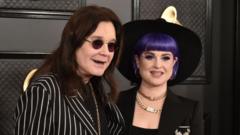Pope Francis, the first Latin American pontiff, passed away at 88 after a stroke, leaving behind a legacy centered on compassion, social justice, and reform of the Catholic Church. His death has initiated a critical moment for the Church, as leaders begin the search for his successor, who may continue his inclusive approach or revert to past traditions.
Pope Francis Dies At 88, Leaving a Legacy of Compassion and Reform

Pope Francis Dies At 88, Leaving a Legacy of Compassion and Reform
The world mourns the passing of Pope Francis, the first Latin American pope, who died after a stroke. His progressive leadership emphasized compassion for marginalized groups.
In a heartfelt tribute that reverberated across the globe, mourners filled St. Peter's Square following the announcement of Pope Francis's death at age 88. His passing, a day after he blessed believers on Easter Sunday, caught many by surprise as the Vatican confirmed he succumbed to a stroke early that morning. Francis, hailed as a champion for the marginalized and a vocal advocate for social justice, served as a beacon of hope and reform for over a billion Catholics worldwide.
As the world reflects on his 12-year papacy, Francis is remembered for shifting the Catholic Church towards inclusivity and conscience-driven leadership. Cardinal Kevin Farrell is now the Vatican’s de facto administrator while the college of cardinals prepares for the conclave to elect his successor. Amid the outpouring of condolences from world leaders, observers are speculating on whether the next pope will follow in Francis's progressive footsteps or lean towards traditional conservatism.
Francis's death marks a pivotal moment for the Church, which has seen him strive to address issues including climate change, poverty, and immigration. His belief in the Church's future lay in reaching out to the world's most vulnerable populations ushered in a new era characterized by a commitment to social equity and dignity.
Cardinal Farrell announced the pope's death, describing it as a significant loss for the Church and humanity. A service of remembrance is planned, with discussions about the qualities needed in Francis’s successor already underway. Observers are particularly focused on the next leader’s direction regarding social justice issues, as the pontiff's unique approach created a vacuum in Catholic leadership and highlighted the need for the Church to confront evolving global challenges.
Francis’s tenure resonated with many U.S. Catholics, with many participating in Mass and mourning services after his passing, reflecting on the warmth and openness he cultivated throughout his papacy. As tributes poured in from former presidents and global leaders, they emphasized his role as a touchstone for moral guidance and compassion in a fractured world.
The conclave must now decide upon a successor capable of bridging deep divides and sustaining the values Francis espoused in his life and teachings, propelling the Church into a future that seeks to embody his vision of outreach and acceptance.
As the world reflects on his 12-year papacy, Francis is remembered for shifting the Catholic Church towards inclusivity and conscience-driven leadership. Cardinal Kevin Farrell is now the Vatican’s de facto administrator while the college of cardinals prepares for the conclave to elect his successor. Amid the outpouring of condolences from world leaders, observers are speculating on whether the next pope will follow in Francis's progressive footsteps or lean towards traditional conservatism.
Francis's death marks a pivotal moment for the Church, which has seen him strive to address issues including climate change, poverty, and immigration. His belief in the Church's future lay in reaching out to the world's most vulnerable populations ushered in a new era characterized by a commitment to social equity and dignity.
Cardinal Farrell announced the pope's death, describing it as a significant loss for the Church and humanity. A service of remembrance is planned, with discussions about the qualities needed in Francis’s successor already underway. Observers are particularly focused on the next leader’s direction regarding social justice issues, as the pontiff's unique approach created a vacuum in Catholic leadership and highlighted the need for the Church to confront evolving global challenges.
Francis’s tenure resonated with many U.S. Catholics, with many participating in Mass and mourning services after his passing, reflecting on the warmth and openness he cultivated throughout his papacy. As tributes poured in from former presidents and global leaders, they emphasized his role as a touchstone for moral guidance and compassion in a fractured world.
The conclave must now decide upon a successor capable of bridging deep divides and sustaining the values Francis espoused in his life and teachings, propelling the Church into a future that seeks to embody his vision of outreach and acceptance.



















